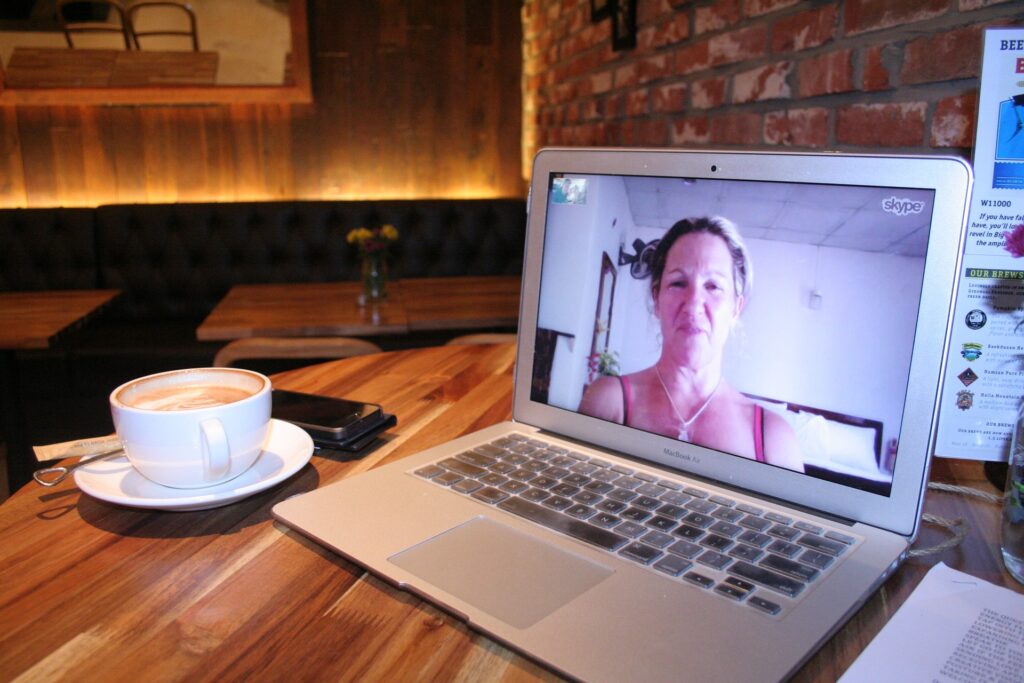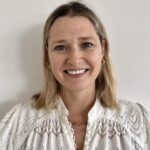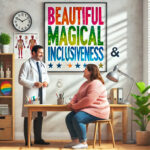Lived experience counsellors take support into the family home
Australian initiative offers free online support to all carers and family members of those living with an eating disorder

Lived experience counsellors take support into the family home
A new counselling service is providing education and support for those caring for someone with an eating disorder.
Eating Disorders Families Australia’s (EDFA) new Fill The Gap counselling service is specifically designed to support eating disorder carers during the often long and exhausting years of supporting a loved one through recovery.
To provide the specific knowledge, understanding and experience required, EDFA has two highly qualified counsellors on Fill The Gap team. Both counsellors have the added depth of personal experience in caring for a loved one with an eating disorder.
Rowena Brookes, based in Queensland, and Angie Sloan, based in Victoria, have each cared for a child diagnosed with Anorexia Nervosa.
Their lived experience of caring for a child with an eating disorder gives them a keen and personal insight into the challenges that face eating disorder carers. They bring this knowledge into their counselling sessions with current carers every day.
This is an account of each of their stories.
Introducing EDFA’s Counsellors

Rowena Brookes
“For me, it has always been a privilege to be able to give people a safe place to talk freely,” says Rowena, who completed her Master in Counselling studies in 2018. For the next few years Rowena worked in private practice and at a private rehabilitation centre. Little did she know that her own family’s challenges would lead her on a path where her ultimate focus would be to support families caring for someone with an eating disorder.
Rowena’s daughter was diagnosed with Anorexia Nervosa in 2021. The diagnosis seemed to come out of nowhere and Rowena felt as though her world had turned upside down. She felt terrified to be on the other side of the medical profession shortage. For the next 18 months, her family was caught up with hospital admissions, nasogastric (NG) tubes, Family Based Treatment (FBT), and endless medical and allied health appointments. Rowena said:
“I learned firsthand how frightening, destructive, isolating, exhausting and relentless an eating disorder is on the person and each member of the family.”
Rowena stopped working, closed her practice, and focused on feeding her daughter. She read anything she could to improve her knowledge of eating disorders to understand what was happening to her child and how to help her.
“When the time came for me to return to work, I knew I wanted to work in the eating disorder space because my professional training and my personal experience put me in a good position to help other families.”

Angie Sloan
Angie’s story is similar. A mother of three girls, Angie had been running her own business, working in schools to provide programs for children who were dealing with anxiety. Then COVID hit and she started spending more time with her daughters at home. It was then that she noticed concerning changes in her 15-year-old daughter.
“As her parents, my husband and I were worried,” Angie says, “but we hoped our child’s focus on being healthy was a temporary phase and that she would return to normal eating soon. We became increasingly worried when we saw how disciplined she was and noticed her behaviours becoming more and more restrictive.”
Angie spent the next three years re-feeding her daughter and enduring many relapses.
“Through my daughter’s illness, I became passionate about the prevention of eating disorders and felt a real pull to stay in the eating disorder field.”
EDFA Counselling does Fill The Gap
Angie knew she wanted to be involved with EDFA’s Fill The Gap counselling service the moment she heard about it. She wished a similar service had been available when her daughter was unwell.
While Angie received professional counselling during her daughter’s illness, it lacked the unique perspective of lived experience.
“As a FTG counsellor, I hope to provide carers with a safe, non-judgmental space to express their emotions and discuss the profound challenges they encounter while looking after a loved one with an eating disorder.
“With my lived experience, I hope I can relate to the challenges the carers are facing and support them through this incredibly difficult time. I also want to provide carers with hope that recovery is possible and that they have the strength they need to guide their loved one into getting their life back on track.”
Rowena agrees, saying what she loves about Fill The Gap is its dedication to helping carers.
“Carers play an important role in a child’s recovery without little help for themselves. Fill The Gap offers that help – and the overwhelmingly positive response we’re receiving proves how needed and valuable this service is.”
Both counsellors recognise the need to ensure they had thoroughly processed their own experiences of being carers before joining EDFA’s Fill The Gap service.\
For Angie, the preparation she undertook for her Fill The Gap role was also personally beneficial.
“By working through the trauma of what I experienced with my daughter’s illness, I now feel ready to support others.”
The need is long-term
Fill The Gap is funded for three years. The aim is to grow the service to eventually include four full-time counsellors, including an Aboriginal or Torres Strait Islander counsellor.
The service is free with all counselling sessions provided online, making it accessible throughout Australia, even in rural and regional areas. There is no waitlist and no referrals are required to see a counsellor.
There is no cap on the number of sessions available to an individual carer – a carer can make one appointment or book multiple sessions for as long as support is required.
Rowena, who hopes the Federal Government will place long-term value on the service, said, “I want to see this service grow in offering support to families caring for a loved one with an eating disorder.”
EDFA is advocating for all families and carers to have access to a service like Fill The Gap at the point of eating disorder diagnosis.
Angie also wants carers to be recognised for the fundamental role they provide in recovery and the fact that it can be an exhausting and isolating experience.
Fill The Gap provides much-needed support so that carers can be the best caregiver for their loved one while also maintaining and caring for their own mental health.
Accessing EDFA’s Fill The Gap counselling service
Fill The Gap administration assistant Susan Donald will answer queries or book a counselling session either via phone 03 9125 5670 or email: susan.donald@edfa.org.aus
Bookings also can be made online here.
EDFA was established in 2016 by a group of passionate parents who recognised the lack of support available to those caring for someone with an eating disorder. It is the only national organisation in Australia providing support, education, and advocacy services SOLELY for carers and families impacted by an eating disorder.





